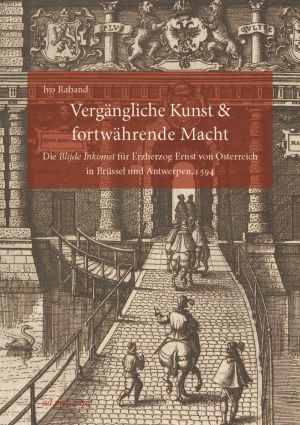Raband, Ivo
Vergängliche Kunst und fortwährende Macht: Die 'Blijde Inkomst' für Erzherzog Ernst von Österreich in Brüssel und Antwerpen, 1594
In 1593, the Habsburg Ernest of Austria (1553–1595), second son of Emperor Maximilian II, was appointed as the governor general of the Spanish Netherlands. The archduke arrived at his new residence in Brussels on 30 January 1594 where he was welcomed with the triumphal entry of the Blijde Inkomst, the traditional “joyous entry”; the second entry into the mercantile metropolis of Antwerp followed in June. The death of the archduke in February 1595, after only 13 months in office, as well as his unsuccessful political endeavours let this spectacle become less relevant even though its study allows an insightful look into the Spanish Netherlands during the Eighty Years’ War.
This study focuses on various performative sites as well as on different visual media and is influenced by current methods and concepts from the fields of Art History, Historiography as well as Social and Religious Studies. Firstly, the ephemeral structures, stages, tableaux vivants, and plays organized by the cities’ authorities will be analysed based on their subsequently published festival books. Secondly, the question will be raised how the Blijde Inkomst influenced the self-image of Ernest of Austria in the Netherlands. To achieve this, the archduke’s portrait engraving by Otto and Gijsbert van Veen, the archducal collection – including a first study of the unpublished probate inventory – as well as the funeral monument in the choir of the Brussels St. Michael and Gudula church will be analysed.







